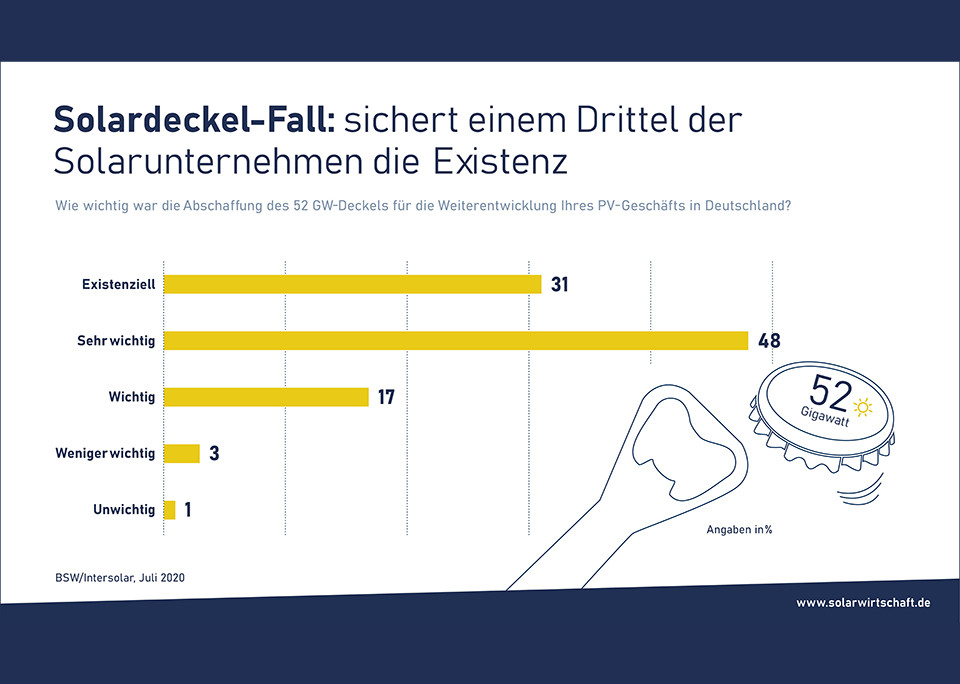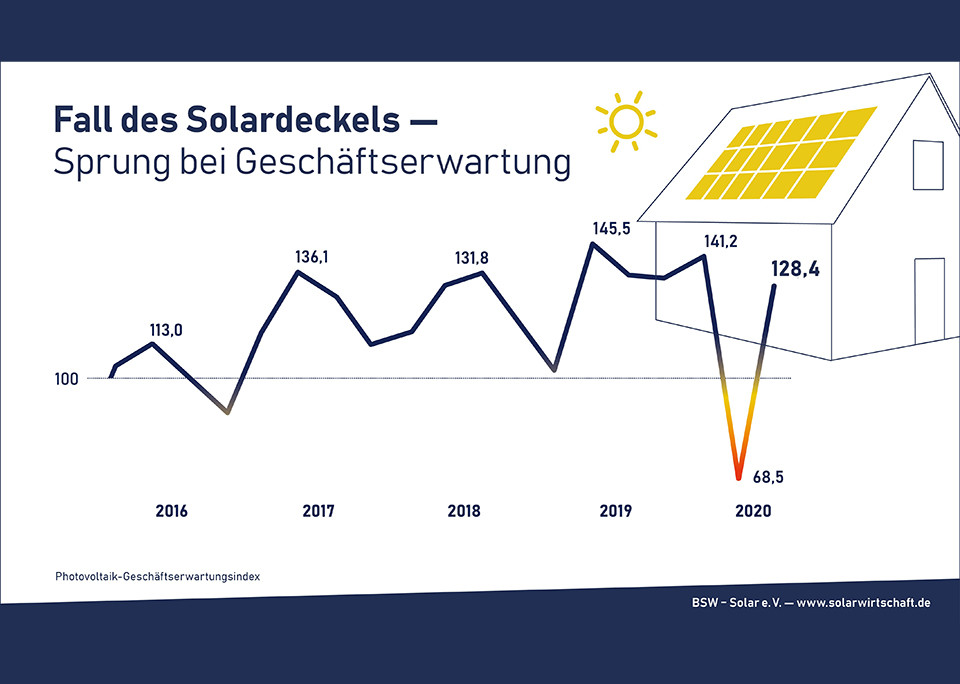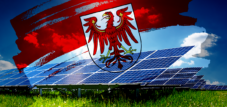Solar cover case secures the existence of a third of solar companies
Language selection 📢
Published on: August 21, 2020 / update from: August 21, 2020 - Author: Konrad Wolfenstein
Industry companies largely viewed the abolition of the 52 GW cap as very important for the further development of their PV business in Germany.
Significant jump in business expectations thanks to the removal of the solar cap. In order to achieve the abolition of the 52 gigawatt funding cap, which was decided by the Bundestag in June with a three-quarters majority, the BSW had previously gone to the Constitutional Court.
The signs are good that it will continue like this and become even more so. Because the energy transition is a done deal in Germany and photovoltaics is of crucial importance .
68 terawatt hours are waiting to be expanded from photovoltaics in North Rhine-Westphalia. So far only around 4 terawatt hours have been developed. Many other measures in Germany are being planned or have already been initiated by politicians. It should also be interesting that solar parks have already been able to be operated profitably without subsidies .
In the first half of 2020, Germany has so far generated around 42 percent of its total electricity feed-in from wind and solar energy systems . This puts the Federal Republic of Germany in a leading position worldwide, even overshadowing Australia, China and the USA. only slightly behind Spain in the area of photovoltaics . But all of this is not enough. The pace of photovoltaic expansion must be multiplied , otherwise there will be a power gap in 2023.
Further obstacles still need to be overcome. This is what the Federal Association of Solar Industry calls the sun tax, the PV-XL roof cap or the location restrictions for solar parks. For this purpose, the federal association has drawn up a 7-point plan for solarizing the energy supply.
Amazon’s measures show us that there is another way to achieve CO2 neutrality with photovoltaics. Amazon relies on automation and autonomization of energy supply .























